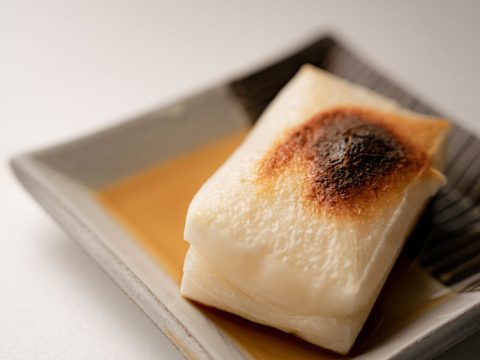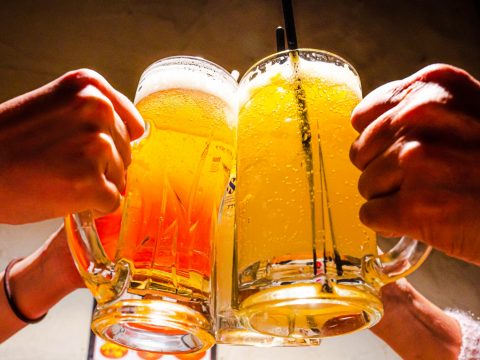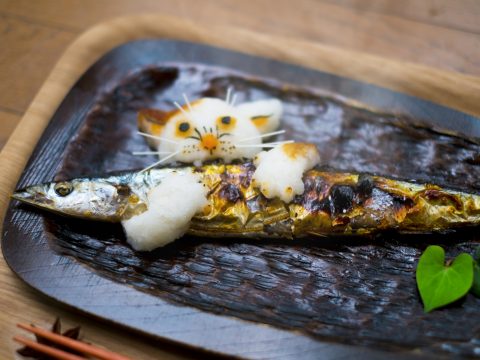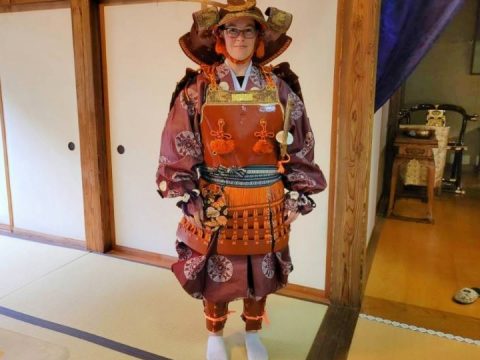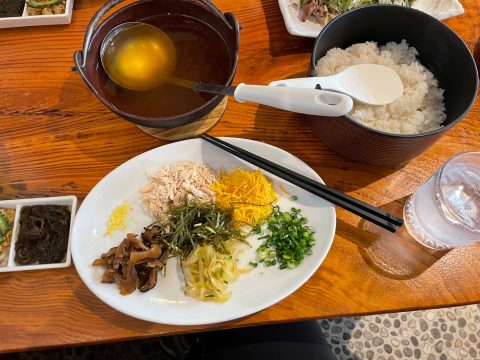Commuting(通勤)
WORK’IN JAPAN
09.09.2025
I moved from Japan to the U.S. last month, and without a car, I’m really feeling the inconvenience. It’s made me miss Japan’s public transportation so much. Japanese trains are always on time, clean, and safe.
When I lived in Japan, my commute was usually about 30 minutes to an hour. I would spend that time listening to podcasts or music, reading manga or books, and studying English or preparing for certifications. Looking back now, I really enjoyed that time. Now that I don’t have a commute, I have a long list of podcasts I haven’t listened to, and I feel like I have to consciously make time for reading and studying. So today, I wanted to talk about commuting.
Commuting by Train
I believe the most common way to commute in Japan is by train. On Japanese trains, there are unwritten rules that help everyone have a comfortable ride. Some of these include refraining from phone calls, being mindful of sound leaking from your earphones, and holding your backpack in front of you.
Another unique Japanese practice is the “delay certificate” (遅延証明書, chien shōmeisho). If your train is late and you’re going to be late for work, you can get a delay certificate from a station attendant to prove why you were late. Policies vary by company, but at the company I worked for, submitting a certificate meant the tardiness wouldn’t affect my pay.
Some trains also have “women-only cars”(女性専用車, josei senyōsha). These were introduced to protect women from sexual harassment. My husband once got on one by mistake and said it was a very awkward experience.
Train Seat Reservation Services
Some railway companies offer services that make commuting more comfortable. For example, the Keikyu Corporation, which runs trains from Kanagawa Prefecture to Tokyo, has a train called the “Wing gō” that lets you purchase a seat from Yokohama to Shinagawa Station in Tokyo. Another example is the Tokyu Corporation’s Toyoko Line, which has a service called “Q SEAT.” With Q SEAT, you can reserve a seat and also use power outlets and free Wi-Fi.
While both services require an extra fee, they’re incredibly convenient on a tiring day when you just want to sit down and relax. Other railway companies offer similar services, so it’s worth checking if your line has one.

Bikes, Buses, and Sharing Services
My family home was far from the train station, so I would get there by bus, bike, or on foot. At the time, I wished I lived closer to the station, but now I realize it was great exercise. Taking a walk to the station allowed me to notice the changing seasons, and it was a nice way to clear my head, which was good for my mental health.
In major cities, there are also sharing services for electric-assist bikes and e-scooters, so it’s a great idea to make good use of those as well.

Happy Commuting!
Do you have things like “delay certificates” or “women-only cars” in your country? I once saw a sign on a train in Singapore that said “No Durians,” and it made me realize how every country has its own unique rules. It was so interesting!
What do you all do during your commute? Do you watch YouTube or TV series? I hope your daily commute is a good time for you!

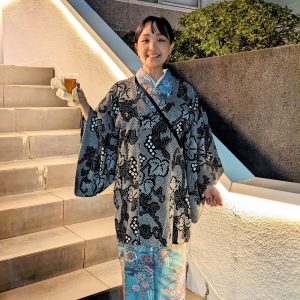
Junko Mikami
Junko was born and raised in Kanagawa Prefecture. She spent about three years working and traveling in New Zealand and Australia, followed by trips to North America, Southeast Asia, and Northern Europe. Living abroad made her appreciate Japanese food and culture even more. She now lives in Tokyo, Japan with her American husband.
Read previous articles by the writer
Read latest articles
KEYWORDS
- # PICKPICK
- # Resume
- # alcohol
- # Rice
- # Soup
- # winter food
- # Fast Food
- # seafood
- # spicy foods
- # raw food
- # fermented food
- # Transportation
- # MEAT
- # Edo culture
- # suits
- # clothing
- # drink
- # fish
- # seasoning
- # Japanese New Years Foods
- # Toshikoshi soba
- # Osechi Ryori
- # Ozoni
- # Christmas
- # Japanese fusion pasta
- # Wafu Pasta
- # Japanese Hot Pot
- # なべ
- # 鍋
- # Miyazaki
- # Chicken Nanban
- # Karamen
- # Autumn Wagashi
- # Mushi-yokan
- # Imo-yokan
- # Japanese Autumn Fruits
- # Autumn
- # Vending Machine
- # fall
- # dango
- # Chestnut rice
- # saury
- # Mushroom
- # Rice vinegar
- # Japanese condiments
- # 調味料
- # Sake
- # Mirin
- # Soy sauce
- # Japanese Noodles
- # Udon
- # Ramen
- # Yakisoba
- # Soba
- # Japanese Seaweed
- # 海藻
- # かいそう
- # Payslip
- # Training
- # Japanese summer foods
- # 和菓子
- # Wagashi
- # ryokucha
- # 夏
- # 飲み物
- # Ramune
- # ラムネ
- # Pokari Sweat
- # ポカリスエット
- # Calpis
- # カルピス
- # Mugicha
- # ume
- # 梅
- # うめ
- # umeshu
- # job hunting
- # tofu
- # Recruitment in Japan
- # miso
- # Japanese cuisine
- # Yellowtail and bonito
- # Children’s Day
- # Kashiwa Mochi
- # Chimaki
- # fruits
- # Kusamochi
- # Types of Agriculture in Japan
- # bread
- # パン
- # パン屋さん
- # japanese bread
- # shokupan
- # meal blead
- # anko bread
- # 桜
- # さくら
- # cherry blossom
- # visa
- # hanami
- # omotenashi
- # sakura
- # おもてなし
- # Japanese hospitality
- # oshibori
- # wet hand towel
- # hand towel
- # restaurant
- # Commuting in Japan
- # Women-only cars
- # Exit gate
- # japanese train
- # train
- # valentine
- # Japanese sweets
- # 朝食
- # Japanese Breakfast
- # Breakfast
- # Japanese
- # 日本
- # healthy
- # persimmons
- # hoshigaki
- # HR
- # work in Japan
- # jinji ido
- # corporate systems
- # Japanese work culture
- # bento
- # ekiben
- # shinkansen
- # omiyage
- # train station
- # Japanese culture
- # work culture
- # mentaiko
- # umeboshi
- # Japanese snacks
- # potato chips
- # Japanese potato chips
- # Japanese writing
- # seaweed
- # konbu
- # ocean foods
- # shio konbu
- # dashi
- # miso soup
- # food processing
- # pear
- # nashi
- # sweet potato
- # japanese sweet potato
- # stingray
- # satsuma imo
- # food value chain
- # homecooking
- # agriculture
- # Japanese homecooking
- # farming
- # nikujaga
- # shojin ryori
- # meat and potatoes
- # traditional foods
- # comfort food
- # buddhist food
- # manufacturing
- # factory
- # eihire
- # vegetarian
- # food and beverage
- # izakaya
- # yatai
- # japanese festival
- # taiyaki
- # matsuri
- # summer
- # Ikayaki
- # smart agriculture
- # shaved ice
- # kakigori
- # かき氷
- # summer dessert
- # Japan
- # Japanese foods
- # dessert
- # fruit
- # matcha
- # icecream
- # Pikcup
- # Pikc up
- # Pcikup
- # skilled labor visa
- # working visa japan
- # Dineer Table in Japan
- # Japanese manner
- # Japanese food
- # Japanese Table Manner
- # Chopsticks
- # Japanese traffic signs
- # traffic information
- # road rules in Japan
- # chocolate
- # green tea
- # Osaka
- # Work Japan
- # Japanese company
- # ikura
- # sushi
- # nigiri
- # wasabi
- # PCIK
- # PICK UP
- # PICK
- # PICKUP



